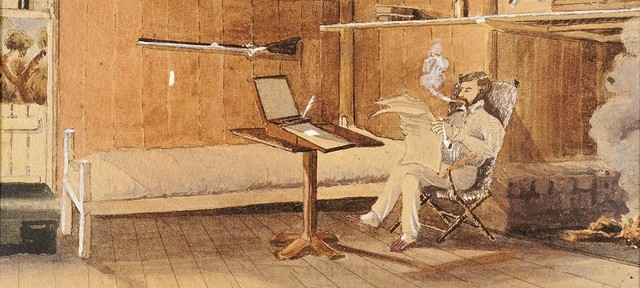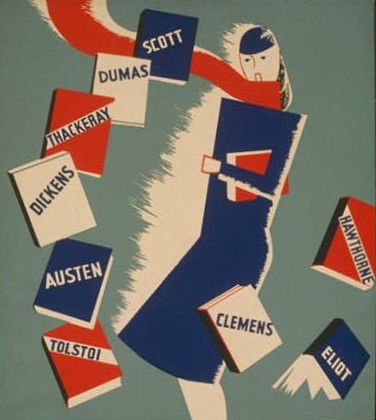
Novels are like people in most aspects except their birthday. The first novel was born multiple times between 1719 and 1750. But like everyone else, the novel had a difficult childhood, followed by an uncertain teenage life. Every step of the way, however, the worse was averted and the novel successfully came of age. As expected, it had relations with other artforms. Some illicit. Some sterile. And with time, other things that claimed to be novels were born. Bastard novels. I’m being nice. Literary critics have called them worse things. Gothic. Sensation novel. And more recently, mommy porn and cotton candy fiction. From time to time, some literary critic would take pity on one these illegitimates, write a moving thesis about how they are really family, and things would change. The kind critic gets a thumbs up. Said novel is welcomed into the fold. And happiness reigns until, of course, the next bastard is born.
If there is one thing that defined the heydays of the novel, it was it’s many travels. Like pasta or the British empire, the novel travelled very well. Chinua Achebe said something similar in one of his essays. But I think he was just being nice when he added that on these journeys, the novel merely picked up foreign habits. The truth is that the novel is one of those people and things that can never stay visitor for too long. You’ve met people like that right? They come visit and just never leave. Before you know what, people begin to believe they’ve always being there and then go to very embarrassing lengths to prove it. It got to the point where if the novel hadn’t imposed itself on your country’s hospitality, you couldn’t dare raise your head in certain circles.
At some point, the youthful exuberance faded. The novel achieved manhood proper. This may be where things started going down hill. I’ve heard it whispered that Modernism is to blame. With modernism the novel became smug, began to take itself far too seriously for it’s own good. Some say it was battling depression–something having do with not being able to handle success. It wanted to lead a solitary life and pretty much gave the masses the hand. It was so hard to understand the novel those days. It had clammed up into itself and lost touch with reality. It stopped talking about things in ways that people cared about. When confronted, it said it was playing…with form. When prodded some more, it went silent. It could not deign to reply the masses and their base desire for story and reality. When a celebrity disses it’s fandom to handle it’s stardom, you know there are dark days ahead. Anyway, it turned out that the novel was just in a momentary funk. At least, that’s what it’s hype-men said. Things actually did get better. The novel found the masses again or maybe the masses found it. Yet, a lasting damage had been done.
Some people are saying that the present decline of the novel should be blamed on that brief period of madness. By the time the novel woke

up from solitude, people had gotten used to watching TV, and there was no going back. Others say it’s old age. Things come and go. It’s the way of the world. But still others say that the novel would not have aged so rapidly if new media had not come. As for the hardcore haters, the end is nigh. In a few decades we will mourn the passing of the novel in the same way we mourned or forgot to mourn the loss of plays and opera. As proof, they point to the fact that women are the only ones reading novels these days. “Why are we pretending,” they often ask, “that woman is not the death of man?”
The numbers are no less gloomy. From McEwan to Rushdie, everyone is complaining of dwindling sales. Of course, there are the E. L. Jameses of the world selling sick amounts of books, like over 15 million copies in a year. Maybe the novel isn’t on a decline after all. But the hardline pessimists have said that the Fifty Shades Trilogy is not even a bastard novel. It’s the novel transformed into a rough beast in its Last Days.
But is Fifty Shades of Grey the wild beast of the novel apocalypse or is it the novel’s last hurrah in a world dominated by tweets and sound bytes?
First Image: “The Squatter Taking His Ease” by Charles Archer via
Second Image: Vintage novel poster via









Ainehi Edoro July 05, 2012 13:53
Jaden thanks so much for stopping by. I hope I didn't sound too pessimistic. I actually love novels way too much to suggest that it's on its way out. And you have nothing to worry about. I'm sure you'll go on to write wonderful novels. But I do think that there might be a lesson or two to learn from the overwhelmingly positive response to Fifty Shades. Anyway, have you read Fifty Shades? YOu just might like it :)